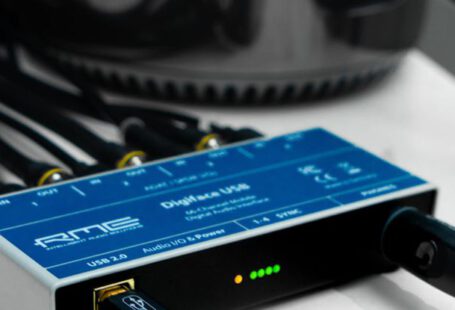Artificial intelligence (AI) has revolutionized various industries by enhancing efficiency, accuracy, and productivity. One area where AI is making a significant impact is in performance optimization. Businesses are increasingly turning to AI-driven solutions to streamline their operations and maximize performance across different functions. From marketing to manufacturing, AI is being leveraged to drive better results and achieve competitive advantages. Let’s dive deeper into how artificial intelligence is being used in performance optimization.
Enhanced Data Analysis
One of the key ways AI is used in performance optimization is through enhanced data analysis. AI algorithms can process vast amounts of data in real-time, allowing businesses to gain valuable insights into their operations. By analyzing historical data and current trends, AI can identify patterns and anomalies that humans might overlook. This data-driven approach enables businesses to make informed decisions and optimize their performance based on actionable insights.
Predictive Analytics
Predictive analytics is another powerful tool that AI brings to performance optimization. By using machine learning algorithms, businesses can forecast future trends and outcomes with a high degree of accuracy. This capability allows organizations to anticipate market changes, customer preferences, and operational challenges, enabling them to proactively adjust their strategies and stay ahead of the competition. Predictive analytics can help businesses optimize their resources, minimize risks, and capitalize on opportunities for growth.
Personalized Recommendations
AI-powered recommendation engines are transforming the way businesses engage with their customers. By analyzing customer behavior and preferences, AI can deliver personalized recommendations that enhance the customer experience and drive sales. Whether it’s suggesting products, content, or services, AI can tailor recommendations to individual preferences, increasing engagement and loyalty. By offering personalized experiences, businesses can optimize their performance by maximizing customer satisfaction and retention.
Process Automation
Automation is a key component of performance optimization, and AI is at the forefront of driving automation across various business functions. By automating repetitive tasks and processes, AI frees up human resources to focus on more strategic activities. Whether it’s automating customer service inquiries, inventory management, or financial analysis, AI can streamline operations, reduce errors, and improve efficiency. Automation not only optimizes performance but also leads to cost savings and increased productivity.
Dynamic Pricing
Dynamic pricing is a pricing strategy that adjusts product prices in real-time based on market demand, competition, and other factors. AI algorithms can analyze complex data sets and market dynamics to optimize pricing strategies for maximum profitability. By setting prices dynamically, businesses can respond to changes in demand and competition, maximize revenue, and improve overall performance. Dynamic pricing powered by AI enables businesses to stay competitive in dynamic markets and capitalize on revenue opportunities.
Supply Chain Optimization
AI is revolutionizing supply chain management by optimizing logistics, inventory management, and distribution processes. By analyzing data from multiple sources, AI can predict demand, optimize inventory levels, and streamline logistics operations. AI-powered supply chain optimization helps businesses reduce costs, improve delivery times, and enhance overall efficiency. By ensuring that the right products are in the right place at the right time, businesses can optimize their performance and meet customer expectations.
Conclusion:
Artificial intelligence is a game-changer in performance optimization, offering businesses powerful tools to enhance efficiency, productivity, and profitability. From enhanced data analysis to predictive analytics, personalized recommendations, process automation, dynamic pricing, and supply chain optimization, AI is reshaping how businesses operate and compete in the digital age. By leveraging AI-driven solutions, businesses can unlock new opportunities, drive innovation, and achieve sustainable growth in a rapidly evolving marketplace. Embracing AI is no longer a choice but a necessity for businesses looking to stay ahead and optimize their performance in today’s competitive landscape.





